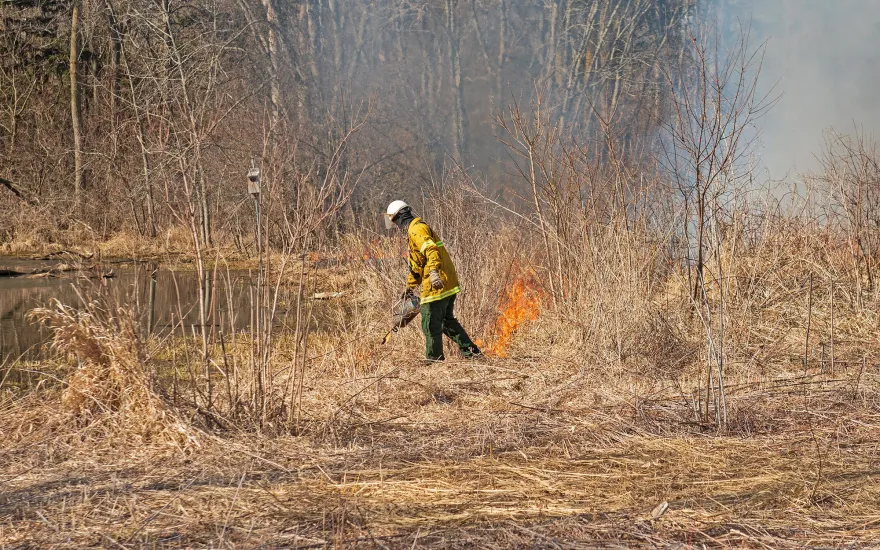Now live: The 2025 Canopy Report. Learn how Americans see trees. GET THE REPORT

The Forest Stewardship Program was authorized by Congress in 1978 as part of the Cooperative Forestry Assistance Act. The program enables the U.S. Forest Service, working through state foresters, to help private landowners develop plans for the sustainable management of their forests. With approximately 45 percent of all forest land in the U.S., or 354 million acres, under nonindustrial private ownership, the potential of this land to provide clean air and water, wildlife habitat, timber supplies and recreational opportunities is enormous.
A problem facing America today is that much of this wooded land is being converted to housing tracts, shopping malls, highways and other non-forest uses. It is estimated this loss of forest land amounts to approximately 6,000 acres/day! Much of the rest is left unmanaged, increasing the risk of wildfires and depriving the owner of benefits that might otherwise be realized.
Professionals in state forestry, working in partnership with the U. S. Forest Service’s State and Private Forestry, use education and technical assistance to encourage landowners to create plans for their property that lead to sustainable forest management. Management plans are an important first step toward maintaining the productivity of our nation’s forests.
The ‘bottom line’ of the Forest Stewardship Program is to:
- Protect forests from harm, e.g. devastating wildfires and insect or disease epidemics.
- Keep forests as forests by reducing the number of acres being converted to other uses.
- Enhance benefits coming from the land – for both the landowner and society. These benefits include clean air and water, wildlife habitat, timber and other renewable products, recreational opportunities and more.
Read more details about the Forest Stewardship Program.
Read about the ‘Four Threats to the Health of the Nation’s Forests.’
